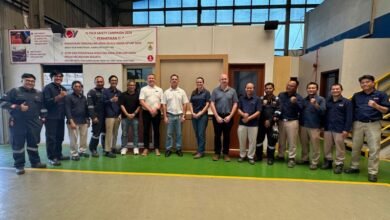The Life and Legacy of William Seven: A Journey Through Time

William Seven is not a name you’ll find in most history books or celebrity magazines, yet his story embodies resilience, creativity, and a quiet influence on those who were lucky enough to cross his path. While he didn’t make headlines in the traditional sense, his impact was undeniable in the communities and industries he touched. From humble beginnings to leaving behind a legacy of dedication and innovation, William Seven’s life is an example of how a single individual can leave a lasting impression without ever needing the spotlight.
Early Life and Humble Beginnings
Born in the early 1900s, William Seven grew up in a small rural town. His childhood was characterized by simplicity—hard work was a family value passed down for generations, and resources were often scarce. His family, although not wealthy, prioritized education and creativity. William’s father was a craftsman, known for his woodwork, and his mother was a schoolteacher who instilled in him a love for learning and reading.
Despite the financial challenges of growing up in the early 20th century, William was a curious child. He spent his free time tinkering with old tools, building miniature versions of his father’s woodwork, and poring over the books his mother brought home from the local library. His imagination was vast, and it wasn’t long before his talents started to shine through.
Passion for Invention
William’s passion for building and fixing things only grew as he got older. In his early teens, he started making small inventions, often repurposing broken items from around the house to create something new. One of his first notable projects was a self-made windmill that powered the family’s barn light. It wasn’t sophisticated by any means, but it marked the beginning of what would become a lifelong love for invention and problem-solving.
His ingenuity was noticed by local mechanics and craftsmen, who often called on him for help with tricky repairs. William never saw his skills as special, but others marveled at his natural talent for seeing potential where others saw obstacles.
The War Years and Finding Purpose
When World War II broke out, like many young men of his generation, William enlisted. His time in the military only sharpened his ability to think on his feet. While he served in various capacities, it was his role as a field mechanic that allowed his mechanical mind to flourish. He was responsible for keeping vehicles, machinery, and other essential equipment running, often with limited supplies and time. Many of his fellow soldiers credited him for their survival in difficult situations, as his quick fixes and makeshift inventions were often the difference between life and death.
While war is never easy, it shaped William’s perspective on life. It taught him the importance of resourcefulness, determination, and teamwork. But more importantly, it showed him the power of innovation during times of crisis.
Post-War Life and Career
After the war, William Seven returned home with a newfound purpose. He knew he wanted to build a career around his ability to invent and improve machinery. He started working at a local manufacturing plant, where his ideas for improving efficiency and productivity soon gained him a reputation as an innovator. His most significant contribution during this time was a redesigned assembly line mechanism that allowed for quicker production with less manual labor. This invention not only saved the company time and money but also improved the working conditions for the employees, a cause close to William’s heart.
Over time, William patented several of his inventions, and while they weren’t world-changing, they had a significant impact on the industries he worked in. His creations were always designed with practicality in mind, focusing on making life easier for the everyday worker. He never sought fame or fortune—he simply wanted to solve problems and make things better.
Family and Community Influence
While William Seven was deeply invested in his work, he never lost sight of the importance of family and community. He married his high school sweetheart, Martha, and they had three children together. William was a devoted father, teaching his children the value of hard work, creativity, and kindness. His home became a gathering place for local kids who wanted to learn how to build, fix, and tinker with various projects. William’s garage was often filled with curious young minds, eager to learn from the town’s local “inventor.”
In the community, William was seen as someone who could always be counted on. Whether it was fixing a broken tractor for a neighbor or volunteering to help build a new playground, he never hesitated to lend a hand. His quiet generosity and willingness to help others became his legacy in the small town where he spent most of his life.
A Lasting Legacy
William Seven passed away in the late 1980s, but his influence didn’t stop there. His children went on to pursue careers in engineering, education, and community service, each of them crediting their father for instilling in them a passion for making a difference. His inventions, though modest, continued to improve lives in subtle ways, from the factory floor to the local farms.
Perhaps William’s most significant contribution was his approach to life. He showed that innovation doesn’t always have to be loud or groundbreaking to matter. Sometimes, it’s the quiet, incremental improvements that make the biggest difference. He believed that anyone could be an inventor if they were willing to see the world not for what it was, but for what it could be.
Conclusion
The story of William Seven is a reminder that greatness comes in many forms. Though he never sought fame or recognition, his contributions made a lasting impact on those around him. His life was a testament to the power of ingenuity, hard work, and kindness, and his legacy lives on in the small yet meaningful ways he improved the lives of others. William Seven may not be a household name, but his story is one worth telling—a story of an everyday man who quietly changed the world, one small invention at a time.



